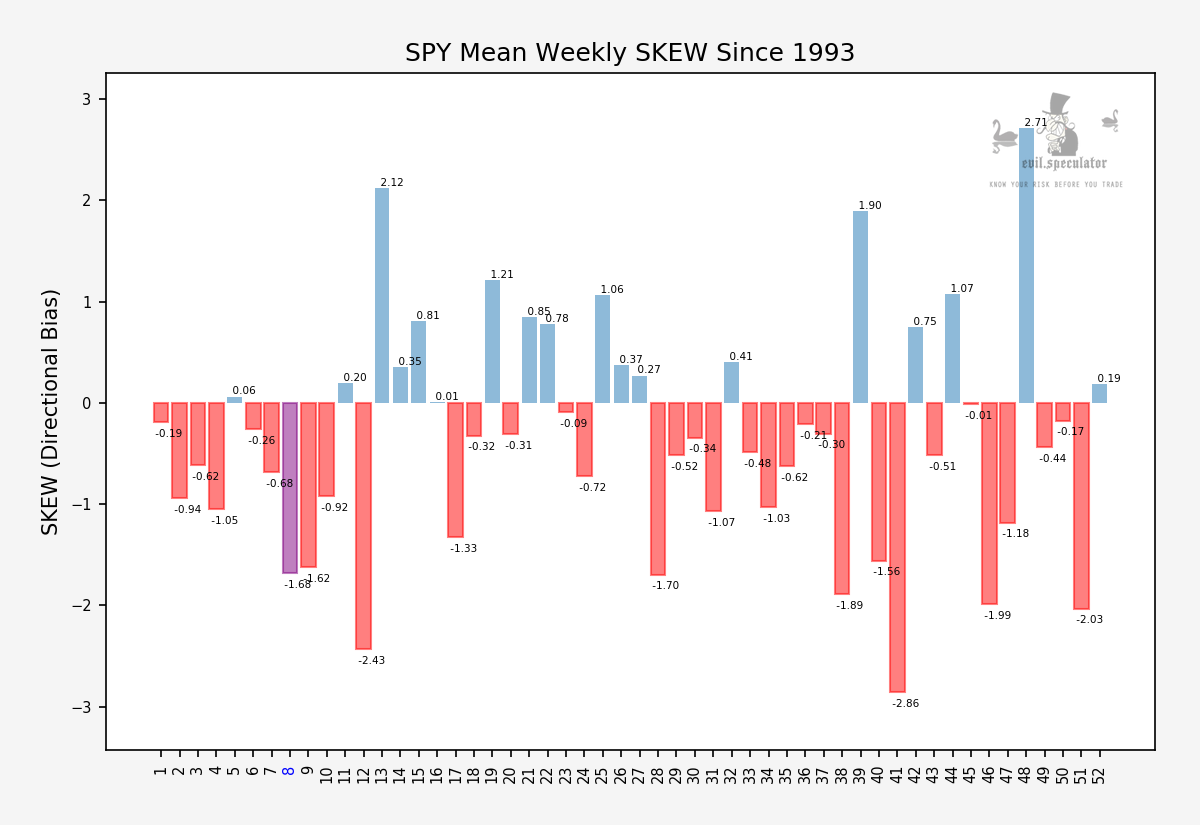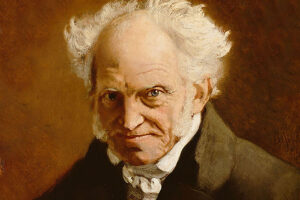The Emotional Purgatory Of Cognitive Biases – Part 2
The Emotional Purgatory Of Cognitive Biases – Part 2
After Yellen and Kuroda in one single day we’re now being treated to Draghi’s updated postulations on how to safe modern finance as we know it. Not a day to be active which is why I’m posting the second part of our little mini series on cognitive biases. Once again a PDF of the original draft by Endika Aboitiz, Jr. can be downloaded here. The first part received quite a bit of praise/approval but also some well founded criticism. And that’s fine – if we are starting to believe that we have all the answers then we probably just stepped into another mental trap. Let’s be reminded that looking in the mirror doesn’t guarantee you that you’ll like what you see. Without further ado here are our next 25 cognitive teasers:
26. Neglect of Probability—Why you’ll soon be playing mega trillions
Leads to errors in decision-making. Following a plane crash, we cancel flights without considering the minute probability of crashing, which remains the same before and after—maybe lower after. People are equally afraid of a 99% chance as they are of a 1% chance of toxic chemicals.
27. Scarcity Error—Why the last cookie in the jar makes your mouth water
By invitation—makes you want it more. Rara sunt cara — rare is valuable. Gallery owners place red dots under most of their paintings, transforming the few remaining into rate items to be snatched quickly. We collect stamps, coins, and vintage cars when the post o ce and banks won’t take them, and old cars cannot be driven on the road.
The attraction—they are in short supply. When deprived of an option, we suddenly want it—a phenomenon called reactance. Romeo and Juliet effect – love between teenagers is forbidden. US student parties – they drink more because of the drinking age.
28. Base-Rate Neglect – When you hear hoof beats, don’t expect a zebra
Investigate the most likely ailments before you start diagnosing exotic diseases. Base rate training. Business school students: “Where do you see yourself?” Answer: “CEO of a Fortune 500 company” is common, but the chances are less than 0.1%.
29. Gambler’s Fallacy – Why the balancing force of the universe is baloney
With independent events, there is no harmonizing force at work. A ball cannot remember how many times it landed on black. If you are afraid of a bomb on a plane, taking one does not reduce the risk. A coin flipped three times, landing on heads— what is your next bet? Tails? Heads is just as likely—Gambler’s Fallacy, i.e. that something must change. Assess independent and interdependent 32. events. “What goes around, comes around” simply does not exist.
30. The Anchor – Why the wheel of fortune makes our head spin
When we have to guess—we use anchors. We start with something we are sure of and then venture into unfamiliar territory. Unfortunately, we use anchors we don’t need. Anchors abound. We clutch at them. Recommended sales prices are nothing but anchors.
31. Induction – How to relieve people of their millions
A farmer feeds a goose. At first the goose is shy and hesitant. “Why is he feeding me?” Then his skepticism goes away. “The farmer has my best interests at heart.” Months pass. Then, fully convinced of the man’s benevolence, the goose is amazed when he takes him out of its enclosure on Christmas Day—and slaughters him.
The goose fell victim to inductive thinking. Same with stocks rising and being chased. We cannot live without inductive thinking. We trust every time we board a plane that aerodynamic laws will still be valid. Remember – certainties are always provisional. Nothing is certain but death and taxes. Loss Aversion – Why evil is more striking than good.
There are more bad things than good – they are far more consequential. In the past even more – one stupid mistake and you were dead. People that were gung ho or reckless died before they could pass on their genes. Those who remained were more cautious. We are their descendants. We fear loss more than we value gain. If you want to convince someone – focus on how it can help them dodge disadvantages. Employees are risk averse – why risk something that brings you, at best, a big bonus and at worse, a pink slip? In almost all situations, safeguarding your career trumps any potential reward.
33. Social Loafing – Why teams are so lazy
The power of two animals pulling a coach does not equal the power of a single horse. On average, two people pulling together – each invests 93%. Three – 85%. Four – 49%. Explains government – over employed.
It occurs when individual contributions are not evident. Why invest all your energy when half will do? Especially when it goes unnoticed. We slack off mentally also. The larger the team, the weaker our individual performance. We hide behind team decisions — the diffusion of responsibility. People behave differently in groups than when alone. Long live meritocracy! Long live a performance society!
34. Exponential Growth – Stumped by a sheet of paper
Linear growth we understand intuitively. Exponential growth – we have no sense of. Why? Because we did not need it before. Whoever spent twice the time collecting berries earned double the amount. Five percent in action – not so bad – we double costs every 14 years. A constant of 70 divided by the rate – gives you how long it will take to double. Nothing that grows exponentially grows forever.
Everyone forgets that especially politicians, economists, and journalists. Eschericheia coli divides every 20 minutes – in a few days it would cover the entire planet. It needs more oxygen and sugar than is available, so there is a cut off. When it comes to growth rates – don’t trust your intuition.
35. Winner’s curse – Curb your enthusiasm
Winner’s curse suggests that the winner of an auction often turns out to be the loser. Regular winners are systematically paid too much and eventually go bankrupt. Bidding wars for cellphone frequencies drive telecom companies to the brink of bankruptcy. More than half of all acquisitions destroy value. We want to outdo our competitors. Auctions – advice – don’t go. If you have to, set a maximum price and deduct 20% – write it down and do not go a cent over.
36. Fundamental Attribution Error – Never ask a writer if the novel is autobiographical
Every story has a face. Be on the look out for the people angle. The tendency is to overestimate individual’s influence and underestimate external, situational factors. Economic success depends far more on the overall economic climate and the industry’s attractiveness than on brilliant leadership.
Music – the conductor – the real miracle of music is, after all, the composition, the creation of sounds, moods, and rhythms where previously only a blank paper lay. The score, in contrast to the conductor or soloist, is faceless. Our preoccupation with other people stems from our evolutionary past. Belonging to a group was necessary for survival. That is why we are so obsessed with our fellow humans today. We spend 90% of our time thinking of other people and 10% assessing other factors and contexts. Forget the performers – pay close attention to the dance of influence to which the actors are subjected.
37. False Causality – Why you should not believe in the stork
Alan Greenspan – his obscure remarks gave monetary policy the aura of a secret science that kept the country on a secure path to prosperity. America’s symbiosis with China, the globe’s low-cost producer and eager buyer of US debt, played a much greater role. Greenspan was merely lucky the economy did so well during his tenure. The Truth: Children do better if their home is full of books. The truth, educated parents tend to value their children’s education more than uneducated ones do. Educated parents have more books at home. Correlation is not causality. Sometimes that presented as the cause, is the effect and vice versa.
38. Halo Effect – Why attractive people climb the career ladder more quickly
When a single aspect dazzles us and a ects how we see the whole picture. A single quality that produced a positive or negative impression outshines everything – the overall effect is disproportionate. Beauty is the best-studied example – we automatically regard good-looking people as more pleasant, honest, and intelligent. They have it easier in their professional lives. The halo effect can lead to great injustice. It obstructs our view of true characteristics.
39. Alternative Paths – Congratulations! You have won Russian roulette
About outcomes that could have happened but did not. They are invisible, so we contemplate them very rarely. Risk is not always visible. Always consider what the alternative paths are. Looking at them from the outside is di cult – from the inside, it is almost impossible.
40. Forecast Illusion – False prophets
In terms of forecasts, the experts fared only marginally better than a random forecast generator. Media darlings are among the poorest prophets of doom and disintegration – the worst. Experts enjoy free reign with few negative consequences.
41. Conjunction Fallacy – The deception of specific cases
The difference between intuitive and conscious thinking is signifcant.
42. Framing – It’s not what you say, but how you say it.
We react di erently to identical situations, depending on how they are presented. C’est le ton qui fait la musique. Which piece of meat is healthier – 99% fat free or 1% fat meat. A fallen soldier, no matter how stupid, turns into a war hero. Realize that whatever you communicate, it has an element of framing.
43. Action Bias – Why watching and waiting is torture
On penalty shots, goalies dive to the left or to the right. Rarely do they stay in the middle. One third comes through the middle. Why? Appearance. It’s more impressive and less embarrassing diving to the wrong side than to freeze on the spot and watch the ball sail past. It looks active, even if it achieves nothing. In the hunter-gatherer society—deliberation could be fatal. So we are inclined to be seen as doing something. All humanity’s problems stem from man’s inability to sit quietly in a room alone.
44. Omission Bias – Why you are either the solution of the problem
A drug will save 80% and kill 20%. Most will withhold approval. You approved it; you get cruci ed the moment the rst person dies. Active euthanasia is punishable by law. Refusal of life-saving measures is legal. Vaccination–okay not to vaccinate. All society at risk. Deliberate inaction seems less grave than a comparable action. We are more lenient on companies that develop no products than those that produce bad ones even if both roads lead to ruin. Building no emission lter on a coal plant feels superior to removing one for cost reasons. Neglecting to declare income tax is less immoral than faking tax documents. Action is more noticeable than inaction. If you are not part of the solution, you are part of the problem.
45. Self-serving Bias – Don’t blame me
Annual reports – on a great year you read of what the CEO did. On a bad year, we read of all sorts of other dynamics like the exchange rate, government interference, and malicious Chinese trade practices. When you do well, it’s because of you. When you don’t, some other reason comes to play. Get honest opinions. Appreciate the people that give it to you.
46. Hedonistic Treadmill – Be careful what you wish for
47. Self-selection (SS) Bias – Do not marvel at your existence
“Why is it always me?”You just think you pick the wrong lines.
SS bias is pervasive.
48. Association Bias – Why experience can damage your judgment
We eat an unknown fruit, we get sick, we avoid it, in the future labeling the plant. This is how knowledge comes to be. This method also creates false knowledge. Advertising creates a link between products and emotions.
You will never see a Coke around a frowning face or a wrinkly body. False connections are the work of association bias, which in uence the quality of our decisions. We condemn bearers of bad news.
Get out of an experience only the wisdom that is in it and stop there, lest we be like the cat that sits on a hot stove lid. She will never sit down on a hot stove lid and that is well. But she will never sit on a cold one anymore.
49. Beginner’s Luck – Be wary when things get on to a great start
Napoleon nor Hitler would have launched a campaign against the Russians without the previous victories in smaller battles to bolster them. How to tell the difference? If you are much better than others over a long period of time, then you can be fairly sure that talent plays a part. If you establish yourself as the market leader among many competitors over many years, then you are probably better.
50. Cognitive Dissonance (CD) – Sweet little lies
Common errors in reasoning. You set out to do something and fail. You can resolve it by somehow getting the grapes, by admitting your skills are insufficient, by re-interpreting what happened retrospectively. The last is CD.












